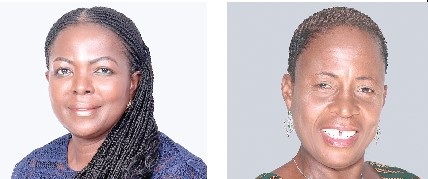
Appoint more women into governance - FIDA Ghana advocates
An Executive Director of FIDA-Ghana, Susan Aryeetey, has said society must intentionally put women in the front row of the country’s governance system in order to reap the needed benefits.
Advertisement
The benefits, she said, would not be limited to economical, social and political advantages, but would also ensure gender parity in Parliament.
Citing a report by the think tank Institute for Democratic Governance (IDEG) in May 2021, she said only 10 per cent of committee chairpersons in that year were women, while a mere 6.6 per cent were vice-chairpersons.
She, therefore, said the current status of women's leadership in Parliament excluded women from effective participation in decision-making in the legislature, and that it did not put the country on a sound footing to propel development.
Her call comes in the wake of the poor performance of women in the just-ended District Level Elections (DLEs) in the country in December last year.
Data from the Electoral Commission (EC) on the latest DLEs showed a continuous low representation of women in local governance in the country.
The DLEs revealed that 95.9 per cent of the 6,243 persons elected as assembly members were males, with only 259 being women, constituting 4.1 per cent.
The percentage of elected women assembly members is an increase of 0.3 per cent compared to the 3.8 per cent in the 2019 elections.
The 259 women who won the elections formed 25 per cent of the total female applicants for the elections which stood at 1,049.
The data also showed that 73 persons with disability (PWDs), comprised of 55 males and 18 females, won the elections.
In terms of the unit committee elections, a total of 3,335 out of the 5,666 female applicants won, representing 12.8 per cent of the total elected members.
For PWDs in the unit committee elections, 67 candidates, made up of 38 males and 29 females, were elected as members.
Pass AA Bill
Speaking to the Daily Graphic in an interview, Mrs Aryeetey said, the Affirmative Action (AA) Bill which was yet to be passed into law by Parliament was one of the most compelling legislation to promote women’s participation in politics and public life.
She said with the absence of the bill, political parties, especially the two front runners, could still elect women as their running mates to ensure a gender diverse leadership and make history.
Mrs Aryeetey said although Ghana was a signatory to a number of international conventions, including the Convention on Elimination of all forms of Discrimination Against Women (CEDAW), the Maputo Protocol or the African Charter on Human and People’s Rights on the Rights of Women in Africa, only marginal gains had been made in the promotion of women in political and public life.
She said it was “a shame that after 66 years of independence, Ghana has had no woman vice-president,” saying as a beacon of democracy on the African Continent and the country as a whole, Ghana must do better.
Women in Parliament
Soon, the country will be going to the polls for the presidential and parliamentary elections and according to the acting Executive Director of FIDA, if concrete steps were not taken to put more women upfront, history would continue to repeat itself with the low representation of women.
Presently, there are 235 men and 40 women, making only 14.5 per cent; the 2024 elections must change the current narrative.
Additionally, she said, Ghana’s ranking of 145th in terms of women’s representation in Parliament by the Interparliamentary Union was abysmal, considering the work that women’s rights activists have done for over two decades.
Available statistics shows that in 1996, out of the 200 seats in Parliament only 18 were women.
In 2000, with the same number of seats, it increased to 19 women.
In 2004, the parliamentary seats were increased to 230 and only 25 women won seats.
With the same number of seats in 2008, the number of women decreased to 20.
In 2012, the number of seats in Parliament was increased to 275 and 30 women went to Parliament.
In 2016, of the 275 seats, 36 women won parliamentary seats and the number increased to 40 seats in the 2020 elections.
According to Mrs Aryeetey, without deliberate measures put in place, especially by political parties and also through public sensitisation of voters, the number of women in Parliament will not see any meaningful increase.
Writer’s email:[email protected]




